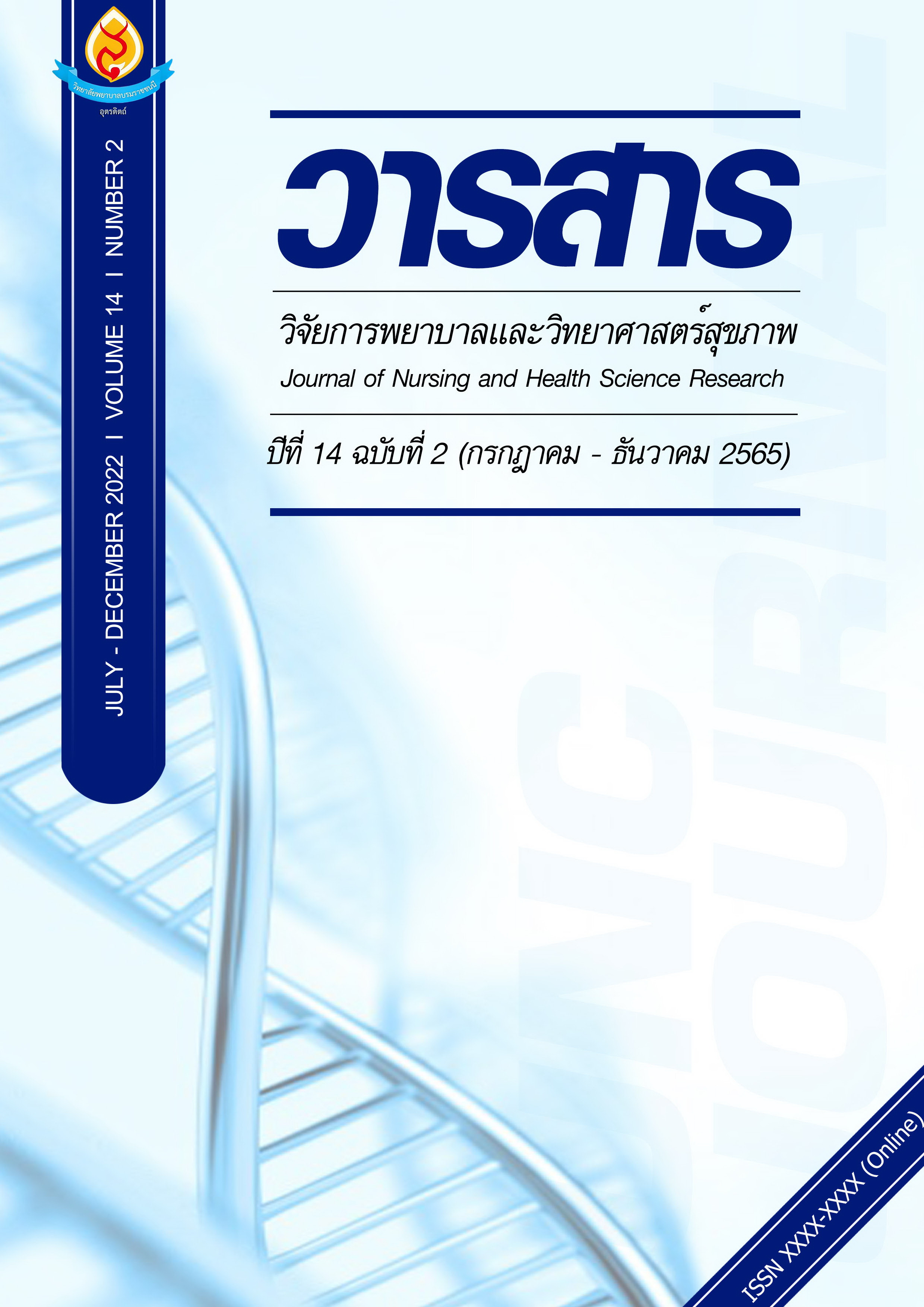ความสุขและความผาสุกเชิงจิตวิทยาของเกษตรกรชาวสวนทุเรียนในภาคตะวันออก
Main Article Content
บทคัดย่อ
ความสุขและความผาสุกเชิงจิตวิทยาเป็นปัจจัยที่แสดงถึงความสามารถดำรงชีวิตอยู่ได้อย่างมีคุณภาพชีวิตของบุคคล การวิจัยนี้เป็นการวิจัยเชิงพรรณนาเพื่อศึกษาความสุขและความผาสุกเชิงจิตวิทยาของเกษตรกรชาวสวนทุเรียนในเขตพื้นที่ภาคตะวันออก กลุ่มตัวอย่างเป็นเกษตรกรชาวสวนทุเรียนในภาคตะวันออก ใน 6 จังหวัด ได้แก่ ชลบุรี ระยอง จันทบุรี ตราด ปราจีนบุรี และนครนายก จำนวน 83 คน เครื่องมือที่ใช้ในการวิจัย คือแบบวัดความผาสุกเชิงจิตวิทยาและแบบสอบถามความสุขของคนไทย ของกรมสุขภาพจิต วิเคราะห์ข้อมูลโดยใช้ t-test และวิเคราะห์ความแปรปรวนแบบทางเดียว (One-way ANOVA) ผลการศึกษาพบว่าโดยภาพรวมผู้ให้ข้อมูลส่วนใหญ่อยู่ในแหล่งพื้นที่จังหวัดระยอง คิดเป็นร้อยละ 32.53 เพศชาย คิดเป็นร้อยละ 66.27 อายุเฉลี่ย 55.28 ปี (±9.73) คะแนนความผาสุกเชิงจิตวิทยาโดยภาพรวมอยู่ในระดับมาก (mean= 4.65, SD= .52) คะแนนดัชนีความสุขคนไทย (THI15) โดยภาพรวมจัดอยู่ในกลุ่มมีความสุขมากกว่าคนทั่วไป (mean =35.93, SD= 5.56) เมื่อเปรียบเทียบระหว่างช่วงอายุ 40 - 54 ปี กับ อายุ 55 - 75 ปี พบว่า ความผาสุกเชิงจิตวิทยาโดยภาพรวมไม่แตกต่างกัน แต่เมื่อพิจารณารายองค์ประกอบย่อยทั้ง 6 องค์ประกอบ พบว่าองค์ประกอบด้านการเชี่ยวชาญในสิ่งแวดล้อมแตกต่างกันอย่างมีนัยสำคัญทางสถิติที่ระดับ .05 โดยกลุ่มอายุ 55 - 75 ปี มีคะแนนสูงกว่ากลุ่มอายุ 40 - 54 ปี ส่วนการเปรียบเทียบดัชนีความสุขคนไทยของทั้งสองช่วงอายุไม่มีความแตกต่างกัน เมื่อเปรียบเทียบชาวสวนที่ได้รับการรับรองตามประเภทการรับรองสวน กลุ่มสวนทุเรียนมาตรฐาน Good Agricultural Practice: GAP, ระบบการรับรองแบบมีส่วนร่วม (Participatory Guarantee System: PGS) และ Organics Thailand พบว่าความผาสุกเชิงจิตวิทยาโดยภาพรวมของทั้ง 3 กลุ่มไม่แตกต่างกัน แต่เมื่อพิจารณารายองค์ประกอบย่อยทั้ง 6 องค์ประกอบ พบว่าองค์ประกอบด้านการมีเป้าหมายในชีวิตแตกต่างกันอย่างมีนัยสำคัญทางสถิติที่ระดับ .05 โดยกลุ่ม Organics มีคะแนนสูงกว่ากลุ่ม GAP ส่วนการเปรียบเทียบดัชนีความสุขคนไทยของทั้ง 3 กลุ่มไม่แตกต่างกัน จะเห็นได้ว่าชาวสวนทุเรียนในเขตภาคตะวันออกในทุกกลุ่มประเภทการรับรองมาตรฐานสวนมีคะแนนความสุขมากกว่าคนทั่วไปและความผาสุกทางจิตวิทยาระดับมาก ดังนั้นในผู้เกี่ยวข้องทุกระดับควรส่งเสริมการทำสวนทุเรียนให้มีการขยายพื้นที่และส่งเสริมชาวสวนทุเรียนให้ทำสวนทุเรียนแบบอินทรีย์ให้เพิ่มมากขึ้น
Article Details

อนุญาตภายใต้เงื่อนไข Creative Commons Attribution-NonCommercial-NoDerivatives 4.0 International License.
บทความหรือข้อคิดเห็นใดใดที่ปรากฏในวารสารวิจัยการพยาบาลและวิทยาศาสตร์สุขภาพ เป็นวรรณกรรมของผู้เขียน ซึ่งบรรณาธิการหรือสมาคมศิษย์เก่า ไม่จำเป็นต้องเห็นด้วย และบทความที่ได้รับการตีพิมพ์เผยแพร่ถือเป็นลิขสิทธิ์ของวารสารวิจัยการพยาบาลและวิทยาศาสตร์สุขภาพ
เอกสารอ้างอิง
Agricultural Technology and Innovation Management Institute. (2020). The pathway of lesson learn to become an organic fruit tree. Retrieved (2021, January 10) fromhttps://www.nstda.or.th/agritec/organic-fruit/ (in Thai).
Certification Alliance Organic Standard. (2020). The certall organic atandard version 1.0. Retrived (2021, July 8) from
https://actorganic-cert.or.th/wp-content/uploads/2020/02/CertAll_Std_v-1.0.pdf (in Thai).
Diener, Ed. (1984). Subjective well-being. Psychological Bullentin, 95, 542-575
Graeme Stuart. (2017). What is the spectrum of public participation? Retrieved (2022, June 25). from https://sustainingcommunity.wordpress.com/2017/02/14/spectrum-of-public-participation/
Haenjohn, J. (2016). The effects of mindfulness on emotional competencies and well-being of undergraduate students. Journal of education, Burapha University, 27(2), 208-222. (in Thai).
International Association for Public Participation (2022). IAP2 spectrum of public participation and core values. RetrivedZ (2022, July 29). from https://cdn.ymaws.com/sites/iap2.siteym.com/resource/resmgr/files/IAP2_Federation_ -_P2_Pillars.pdf
Kungwan, J. (2020). Durian: the king of fruits vharming diversity of Thai native durian. Sarakadee, 36(424), 32-69. (in Thai).
Lifshitz R., Nimrod G., & Bachner, YG. (2019). Spirituality and wellbeing in later life: a multidimensional approach. Aging Ment Health, 23(8), 984-991. doi: 10.1080/13607863.2018.1460743
Lyubommirsky; S. (2008). The how of happiness: a scientific approach to getting the life you want. New York: The Penguin Press.
Mongkol, A., Huttapanom, W., Chetchotisakd, P., Chalookul, W., Punyoyai, L. & Suvanashiep. S. (2001). The study to develop Thai mental health indicator. Journal of ThePsychiatric Association of Thailand, 46(3), 109 – 225. (in Thai).
National Organic Agriculture Development Board. (2020). Action plan on organic agriculture 2017-2022. Retrieved (2021, Jaunary 10). from https://drive.google.com/file/d/1Rei6FEsHGxyW7EA4yIt3tWUE8rT_ZmPV/view (in Thai).
National Bureau of Agricultural Commodity and Food Standards, (2019). GAP food plants. Bangkok: ACFS. (in Thai).
Office of Agricultural Economics. (2022). Agricultural Economic Report 2022. Retrieved (2022, August 1). from
https://www.oae.go.th/assets/portals/1/fileups/bappdata/files/Outlook_Q3_2565.pdf (in Thai).
Office of Agricultural Economics. (2021). Agricultural statistics of Thailand year 2020. Retrieved (2021, Jaunary 10). fromhttps://www.oae.go.th/assets/portals/1/files/jounal/2564/yearbook2563.pdf (in Thai).
Office of Agricultural Economics. (2019). Agricultural economic information by product year 2019. Retrieved (2021, Jaunary 10). from https://www.oae.go.th/assets/portals/1/files/ebook/2563/commodity2562.pdf (in Thai).
Positioning magazine. (2010). Gross national happiness. (2021, Jaunary 10). from https://positioningmag.com/12277 (in Thai).
Ryff, C. D. (1989). Happiness is everything, or is it? explorations on the meaning of psychological well-being. Journal of Personality and Social Psychology, 57(6), 1069-1081.
Ryff, C. D. (2014). Psychological well-being Revisited: Advances in the Science and Practice of Eudaimonia. Psychother Psychosom, 83, 10–28 DOI: 10.1159/000353263.
Ryff, C. D., & Keyes, C. L. M. (1995). The structure of psychological well-being revisited. Journal of Personality and Social Psychology, 69(4), 719-727.
Ryan, R. M., & Deci, E. L. (2001). On happiness and human potentials: A review of research on hedonic and eudaimonic well-being. Annual Review of Psychology. 52, 141-166.
Seligman, M. E. P. (2011). Flourish: a visionary new understanding of happiness and well-being. New York: Free Press.
Senadee, W. & Pomrit, P. (2017). Durian and durian farmers in the 4.0 era. Kehakaset Magazine, 41(6), 59-84. (in Thai).
Senadee, W. & Pomrit, P. (2017). The future of Thai durian..through the perspective of Chumphon farmers and durian traders. Kehakaset Magazine, 41(10), 63-83. (in Thai).
Thai Organic Agriculture Foundation. (2017). Participatory guarantee systems for organic agriculture PGS operational manual. 3rd Bangkok: land management research and development division department of land development. (in Thai).
Watson, D., Clark, L. A., & Tellegen, A. (1988). Development and validation of brief measures of positive and negative affect: The PANAS Scales. Journal of Personality and Social Psychology. 47, 1063-1070.
World bank (1996). Participation sourcebook Washington, D.C.: The World Bank.


